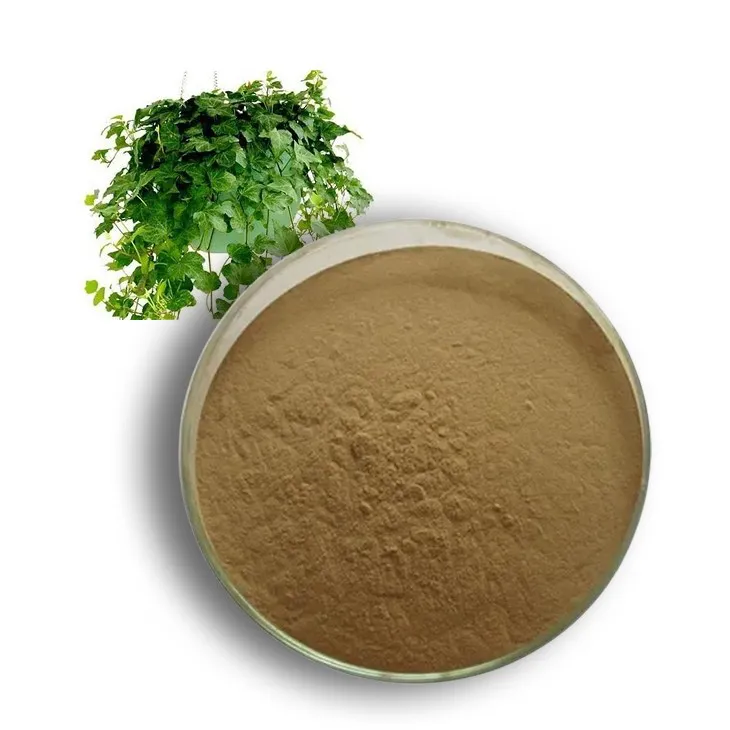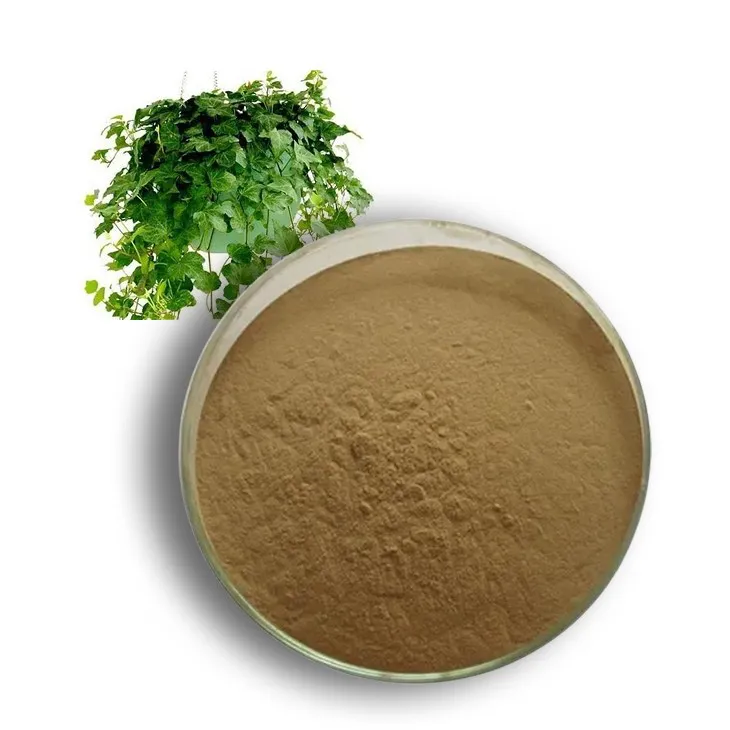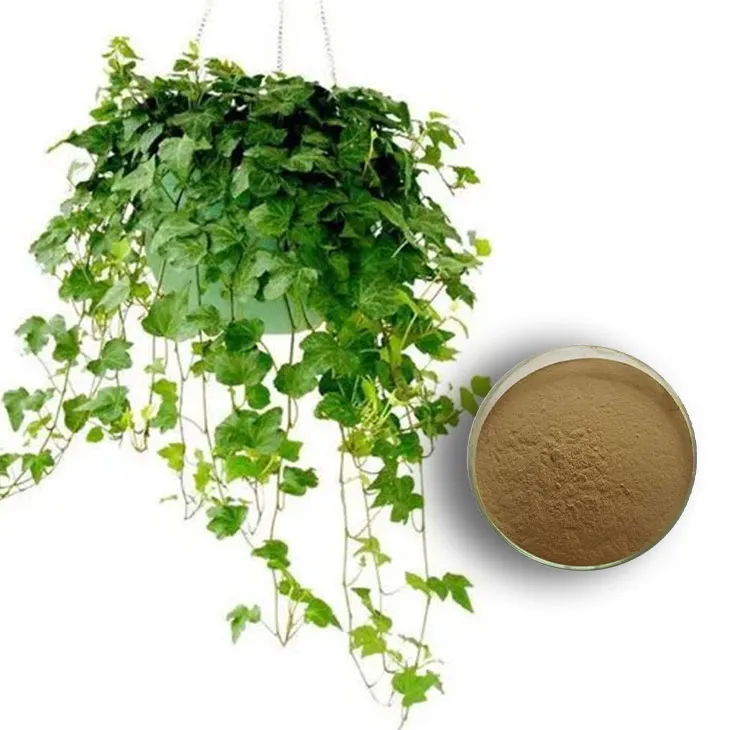- 0086-571-85302990
- sales@greenskybio.com
Standard - process Ivy extract.
2024-11-28

1. Introduction to Ivy Extract
Ivy Extract has been a subject of great interest in various fields for a long time. The ivy plant, from which the extract is obtained, is a well - known botanical specimen. Ivy is found in different regions around the world and has been part of traditional medicine in some cultures. The standard processing of Ivy Extract is crucial as it unlocks the potential of this plant - based substance.

2. The Standard Processing of Ivy Extract
2.1 Harvesting the Ivy
The first step in obtaining standard - processed ivy extract is the careful harvesting of the ivy plants. This is not a random process. Professional harvesters usually select mature ivy plants at the appropriate time of the year. They need to ensure that the plants are healthy and free from diseases or pests. This careful selection at the harvesting stage is fundamental as it lays the foundation for a high - quality extract.2.2 Cleaning and Preparation
Once the ivy is harvested, it goes through a thorough cleaning process. All dirt, debris, and other unwanted materials are removed. This is an essential step to prevent any contamination in the final extract. After cleaning, the ivy is prepared for the extraction process. This may involve cutting or shredding the plant parts to the appropriate size, which can increase the surface area for efficient extraction.2.3 Extraction Methods
There are several extraction methods used in the standard processing of ivy extract.- Solvent Extraction: One common method is solvent extraction. Here, a suitable solvent, such as ethanol or water, is used to dissolve the bioactive compounds from the ivy plant. The choice of solvent depends on various factors, including the solubility of the desired compounds and the safety of the final product. For example, ethanol is often preferred because it can effectively extract a wide range of compounds while being relatively safe for consumption or use in cosmetics when properly processed.
- Supercritical Fluid Extraction: Another advanced method is supercritical fluid extraction. This technique uses supercritical fluids, like supercritical carbon dioxide. Supercritical fluids have unique properties that make them excellent solvents for extracting bioactive compounds. They can be adjusted to have different solubilities depending on the pressure and temperature conditions. This method is often favored for its ability to produce a more pure extract with a higher concentration of the desired bioactive compounds.
2.4 Purification and Concentration
After the extraction, the resulting liquid contains not only the desired bioactive compounds but also other substances. So, a purification process is carried out. This may involve filtration, centrifugation, or chromatography techniques to separate the pure ivy extract from impurities. Once purified, the extract may be concentrated to increase the concentration of the bioactive compounds. This is important as it enhances the potency of the final product.
3. Bioactive Compounds in Standard - Processed Ivy Extract
Standard - processed ivy extract contains a rich variety of bioactive compounds that are responsible for its potential health and other benefits.
- Saponins: Saponins are one of the major components in ivy extract. These compounds have a wide range of biological activities. They can interact with cell membranes and may have antimicrobial, anti - inflammatory, and immunomodulatory effects. In the context of respiratory health, saponins may help in reducing inflammation in the airways, which can be beneficial for people with respiratory problems.
- Flavonoids: Flavonoids are well - known for their antioxidant properties. In ivy extract, flavonoids play a crucial role in combating oxidative stress in the body. Oxidative stress is associated with various diseases, including heart disease, cancer, and neurodegenerative disorders. By scavenging free radicals, the flavonoids in ivy extract can protect cells from damage and contribute to overall health.
- Phenolic Compounds: Phenolic compounds in ivy extract also contribute to its antioxidant and anti - inflammatory properties. They can have a positive impact on the body's defense mechanisms. For example, they may help in reducing inflammation in the skin, which is beneficial for cosmetic applications.

4. Potential Health Benefits of Standard - Processed Ivy Extract
4.1 Respiratory Health
One of the most studied areas regarding ivy extract is its potential role in respiratory health.- Bronchial Relaxation: Ivy extract may have a bronchodilatory effect, which means it can help relax the muscles in the bronchial tubes. This can be particularly useful for people with asthma or other obstructive pulmonary diseases. By relaxing the bronchial muscles, it can improve airflow and make breathing easier.
- Anti - Inflammatory Effects: As mentioned earlier, the bioactive compounds in ivy extract, such as saponins and phenolic compounds, have anti - inflammatory properties. In the respiratory system, this can help reduce inflammation in the airways. Chronic inflammation in the airways is a common problem in respiratory diseases, and reducing it can lead to improved respiratory function.
- Mucolytic Activity: Ivy extract may also have mucolytic properties. It can help break down mucus in the airways, which can be beneficial for people with conditions where excessive mucus production is a problem, such as chronic bronchitis. By thinning and loosening the mucus, it can be more easily expelled from the body, improving respiratory comfort.
4.2 Antioxidant Benefits
The antioxidant properties of standard - processed ivy extract are of great significance.- Free Radical Scavenging: The flavonoids and phenolic compounds in the extract are effective free radical scavengers. Free radicals are highly reactive molecules that can damage cells and DNA. By neutralizing these free radicals, ivy extract can protect cells from oxidative damage. This can have a positive impact on overall health and may be associated with a reduced risk of chronic diseases.
- Cellular Protection: Antioxidants in ivy extract can also protect cellular components such as membranes, proteins, and mitochondria. This protection at the cellular level is essential for maintaining normal cell function and preventing cell death. It can contribute to healthy aging and may have implications for various aspects of health, including cardiovascular health and skin health.
4.3 Other Potential Health Benefits
- Immune System Support: Some of the bioactive compounds in ivy extract, such as saponins, may have immunomodulatory effects. They can help regulate the immune system, either by enhancing the immune response when needed or by suppressing an overactive immune system. This balance in the immune system is crucial for overall health and can help the body defend against infections and diseases.
- Digestive Health: There is some evidence to suggest that ivy extract may have a positive impact on digestive health. It may help in reducing inflammation in the digestive tract and could potentially be beneficial for conditions such as gastritis or inflammatory bowel diseases. However, more research is needed in this area to fully understand its mechanisms and effectiveness.
5. Applications in the Cosmetic Industry
5.1 Skin Health Benefits
Standard - processed ivy extract has attracted significant attention in the cosmetic industry due to its potential benefits for skin health.- Anti - Inflammatory Effects on Skin: The anti - inflammatory properties of ivy extract can be very beneficial for the skin. Skin inflammation can be caused by various factors, such as environmental pollutants, allergens, or skin diseases. By reducing inflammation, ivy extract can help soothe irritated skin, reduce redness, and improve the overall appearance of the skin.
- Improvement of Skin Texture: Ivy extract may also contribute to improving skin texture. It can stimulate collagen production in the skin. Collagen is an important protein that provides structure and elasticity to the skin. As we age, collagen production decreases, leading to wrinkles and sagging skin. By promoting collagen production, ivy extract can help keep the skin firm and smooth.
- Antioxidant Protection for Skin: The antioxidant compounds in ivy extract can protect the skin from oxidative damage. Sun exposure, pollution, and other environmental factors can generate free radicals in the skin, which can lead to premature aging, wrinkles, and skin cancer. By scavenging these free radicals, ivy extract can help maintain the health and youthfulness of the skin.
5.2 Use in Cosmetic Formulations
Ivy extract can be incorporated into various cosmetic formulations.- Creams and Lotions: It can be added to creams and lotions to provide the above - mentioned skin benefits. These products are used for daily skin care and can help improve the skin's condition over time.
- Serums: In serums, ivy extract can be a key ingredient. Serums are often formulated with high - concentration active ingredients and are designed to penetrate deeper into the skin. Ivy extract in serums can target specific skin problems, such as fine lines and wrinkles, and provide more intensive treatment.
- Masks: Cosmetic masks containing ivy extract can also be popular. These masks are usually applied for a short period and can provide an instant boost to the skin's appearance. They can hydrate the skin, reduce inflammation, and leave the skin looking refreshed.
6. Safety Considerations and Precautions
While standard - processed ivy extract has many potential benefits, it is important to consider safety aspects.
- Allergic Reactions: Some individuals may be allergic to ivy extract. People with known allergies to plants in the same family as ivy should be especially cautious. Allergic reactions can range from mild skin rashes to more severe respiratory or systemic reactions. It is always advisable to do a patch test before using any product containing ivy extract, especially for those with sensitive skin.
- Dosage and Usage: When using ivy extract for health or cosmetic purposes, it is important to follow the recommended dosage and usage instructions. Excessive use may lead to unwanted side effects. For example, in some cases, high doses of ivy extract may cause gastrointestinal discomfort or other adverse reactions.
- Quality and Source: Ensuring the quality of the ivy extract is crucial. It should be obtained from reliable sources and processed under strict quality control standards. Poor - quality extracts may contain contaminants or have inconsistent levels of bioactive compounds, which can affect its safety and effectiveness.
7. Conclusion
Standard - processed ivy extract is indeed a natural treasure. Its rich composition of bioactive compounds offers a wide range of potential health benefits, from respiratory health to antioxidant protection, and also has great potential in the cosmetic industry. However, proper safety measures should be taken when using it. With further research, the full potential of this remarkable plant extract may be more fully realized, and it may find even more applications in the future.
FAQ:
What are the bioactive compounds in standard - process Ivy extract?
Standard - process Ivy extract contains a rich array of bioactive compounds. These may include flavonoids, saponins, and other phytochemicals. However, the exact composition can vary depending on the extraction process and the source of the ivy plants.
How is the standard - process of Ivy extract carried out?
The standard - process of Ivy extract is carried out through a series of carefully controlled procedures. This typically involves harvesting the ivy plants at the appropriate time, cleaning them thoroughly, and then using extraction methods such as solvent extraction or supercritical fluid extraction. The resulting extract is then purified and standardized to ensure consistent quality.
What are the potential health benefits of standard - process Ivy extract in respiratory health?
Standard - process Ivy extract has been studied for its possible role in respiratory health. It may help in alleviating certain respiratory problems by, for example, reducing inflammation in the airways and promoting better breathing. However, more research is needed to fully understand its mechanisms and effectiveness.
How can standard - process Ivy extract benefit skin health?
Standard - process Ivy extract may offer benefits for skin health. It could improve skin texture by promoting cell turnover and reducing inflammation. It may also have antioxidant properties that protect the skin from damage caused by free radicals.
Is standard - process Ivy extract safe for consumption?
When used appropriately, standard - process Ivy extract is generally considered safe for consumption. However, like any supplement, it may cause side effects in some individuals, especially those with allergies or pre - existing medical conditions. It is always advisable to consult a healthcare professional before starting to use it.
Related literature
- The Bioactive Compounds of Ivy Extract and Their Potential Health Benefits"
- "Standardized Processing of Ivy Extract: Quality Assurance and Efficacy"
- "Ivy Extract in Respiratory Health: Current Research and Future Perspectives"
- "The Role of Ivy Extract in Cosmetic Applications for Skin Health"
- ▶ Hesperidin
- ▶ Citrus Bioflavonoids
- ▶ Plant Extract
- ▶ lycopene
- ▶ Diosmin
- ▶ Grape seed extract
- ▶ Sea buckthorn Juice Powder
- ▶ Fruit Juice Powder
- ▶ Hops Extract
- ▶ Artichoke Extract
- ▶ Mushroom extract
- ▶ Astaxanthin
- ▶ Green Tea Extract
- ▶ Curcumin
- ▶ Horse Chestnut Extract
- ▶ Other Product
- ▶ Boswellia Serrata Extract
- ▶ Resveratrol
- ▶ Marigold Extract
- ▶ Grape Leaf Extract
- ▶ New Product
- ▶ Aminolevulinic acid
- ▶ Cranberry Extract
- ▶ Red Yeast Rice
- ▶ Red Wine Extract
-
Feverfew Extract
2024-11-28
-
Tongkat Ali Extract Powder
2024-11-28
-
Chia Seed Powder
2024-11-28
-
Senna Leaf Extract
2024-11-28
-
Epimedium extract powder
2024-11-28
-
Milk Thistle Extract
2024-11-28
-
Tongkat Ali Extract
2024-11-28
-
Scutellaria Extract
2024-11-28
-
Kelp Extract Powder
2024-11-28
-
Agaricus Blazei Extract
2024-11-28





















